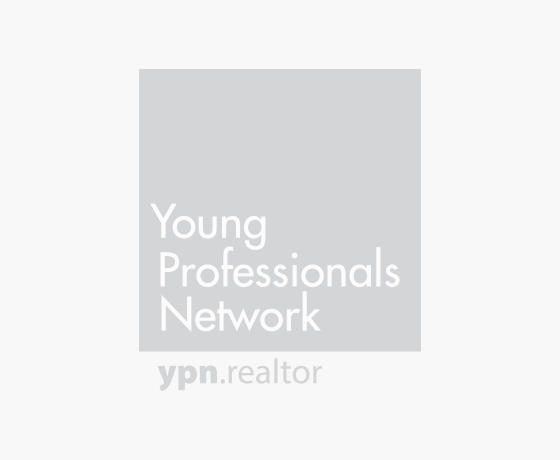By Scott Newman
So you just found out your buddy got a big promotion and is now ready to buy a sexy luxury condo in downtown Chicago. He’s your boy–you’ve known him since grade school–of course he’s going to give you first crack at the business, and you’ve already started spending the commission check. But before you blindly agree to be his agent, stop and think of the potential consequences of working with close friends and how you can make sure it’s a positive experience for both of you.
Treat Them Like Any Other Client
Many real estate pros go one of two ways when they work with friends – and both are bad. The first is when all their professional experience and training goes out the window and they act super lax and unprofessional thinking it will be OK because they know the client.
The other is the agent who takes things so seriously that they literally suck all the fun out of the entire process for the client, who then ends up never wanting to work with–or refer anyone to them–again.
What’s the lesson here? Forget about the personal relationship you have with this particular client and give them the same high level of service and overall experience you provide to all your other clients. If you follow that golden rule, you virtually eliminate the risk of damaging the personal or professional relationship with the client.
Expect To Go Above and Beyond
I have literally seen agents arguing with close friends they are representing while in the hallway outside the closing office. The expectations the client had vs. the expectations the agent had might as well have existed in two separate universes.
If you work for people you know personally, know from the beginning that meeting the minimum acceptable requirements of your job will not be enough. If that’s all you do, then you will likely upset your client more times than not.
Remember, your friends are hiring you because they think you’re good at your job and because they want to give you the business. But they also subconsciously might expect to lean on you a little more–and probably expect more than if they hired some agent they saw on a billboard. For example, I have cleaned up more cat and dog messes than I can count for friends who didn’t have time to make it home to clean up before a showing. I’ve also picked up disgusting dirty clothes, picked people up from the airport, driven them to the suburbs, and even let them sleep on my couch when needed.
The bottom line is, if you’re not prepared to go above and beyond for the people you have pre-existing personal relationships with, then this is not a good source of business for you. If the idea of working with friends leaves you with apprehensions, then focus your energy in other areas.
Over-Document to Avoid Disaster
Some people handle stress better than others. And anyway you slice it, selling or buying a house is a stressful experience for any client. Things are said, things are forgotten or misinterpreted, and in the end, feelings can be hurt and relationships damaged. Fortunately, there is an easy way to avoid this: over-document.
You should never conduct any business for a friend without having detailed and explicit direction in writing. This goes for counter offers (which often happen orally or via email after the initial offer is submitted), commission changes, or anything else that can be misinterpreted or otherwise come back to bite you in the butt.
I learned my lesson the hard way. I had a client who I had known for years, and we discussed multiple times during the process that she’d be taking the washer/dryer (which were wedding gifts from her parents) and replacing them with similar models. I assumed the expectation couldn’t have been anymore clear.
However, right before closing, the buyer’s attorney asked why those items were missing during the final walk-through. My client suddenly had amnesia and denied ever having a conversation about replacing the washer and dryer. In fact, she was adamant that I had committed to giving the buyer a credit for these items out of my own pocket.
What were my choices at that point? Because I’d done such a poor job documenting the transactional details, I had no choice but to give up $1,000 of my commission to cover the cost of the credit so the deal would close and I could salvage the relationship with my client.
The lesson here? Documentation and organization are key to being successful with any type of transaction, and become even more essential when dealing with clients you have a relationship with.
If you have a strong network, leveraging personal relationships to grow your business can be one of the best paths to success. But it doesn’t come without risks. To effectively work with friends, it’s important to treat them like all your other clients, expect to go above and beyond, and over-document to avoid damaging either the professional or personal relationship. Follow these tips and you can make working your personal network a key part of your success in 2014.
Scott Newman is the broker-owner of Newman Realty in Chicago. Connect with Scott at www.newmanknowschicago.com or @newmanrealty.


Comments 3
Great advice. I’ve worked with lots of friends over the years and haven’t had a bad experience… but it’s because I go above and beyond and treat them like other clients. I agree that many agents will loose their professionalism while working with friends, thinking that it’s easy money. Under promise and over deliver, especially when working with friends. Friends are the best source of referrals, so I make sure they have the best experience and value my expert services.
That’s a lesson learned the hard way about the washer and dryer!
extracted from the OPN (Old People’s Network):
In every transaction where there is disappointment -seller, buyer, lessor, tenant – the problem always comes down to expectations. The client wants the agent to perform miracles for them, overwhelming the market with expertise in their favor because they don’t have proper expectations. My experience (3 decades now) with folks I go to church with, meet at Boy Scouts, on the soccer fields, and live next door to, is to treat them like any other client – with my professinal best! Providing them with accurate, no hype information about the marketplace, the process and my capabilities. The NAR Code of Ethics provides the absolute best guide for how to do business … with ANY customer. Set a realistic pace for growing your business, establish routines that will outlast any trends, develop scripts that describe yourself and what it takes to complete a transaction in today’s marketplace and you won’t lose any sleep at night when a deal goes south because you, as an agent, are not a magician.
Best wishes to the YPN! someday you will be in the OPN!
J Knight,
GRI, CDT, PMP
Real Estate & Construction Specialist
Scott,
It looks like you are the main blogger here. : )
One of the last deals I did as a full-time realtor was with a friend. It ended up being a bad deal for both me and my client.
I wanted to help him out. He had to leave town in a few weeks, so I took his overpriced listing (mistake #1).
I guess I thought that once they left town, he would be motivated to get the pricing where it needed to be. (mistake #2)
Then I offered to keep and eye on his house for him. (mistake #3) I think I spent more time mowing his yard than I did mowing my own.
I actually moved out of the area and left the listing with another agent.
One of my first real estate website clients was actually the next listing agent on that property. : )
My friend basically followed the market down, always about 5- 10k over market value until finally he had bled about $100,000 and relented to sell the house.
I was a little upset because of all the time and money I spent showcasing and promoting his property. If he would have been a REAL client, I probably wouldn’t have taken his listing.
That deal ended up being a bad deal for both of us.
I don’t know what I would recommend. I guess that the way I would do it again, is just to not break any of your own listing rules or buyer pre-qualification rules because they are your friend. At the end of the day, you are running a business.
If you were selling furniture, would you give them free furniture?
-James
IDXGuys.com Premium Real Estate Websites. IDX Broker Customizations. Content Marketing for Real Estate